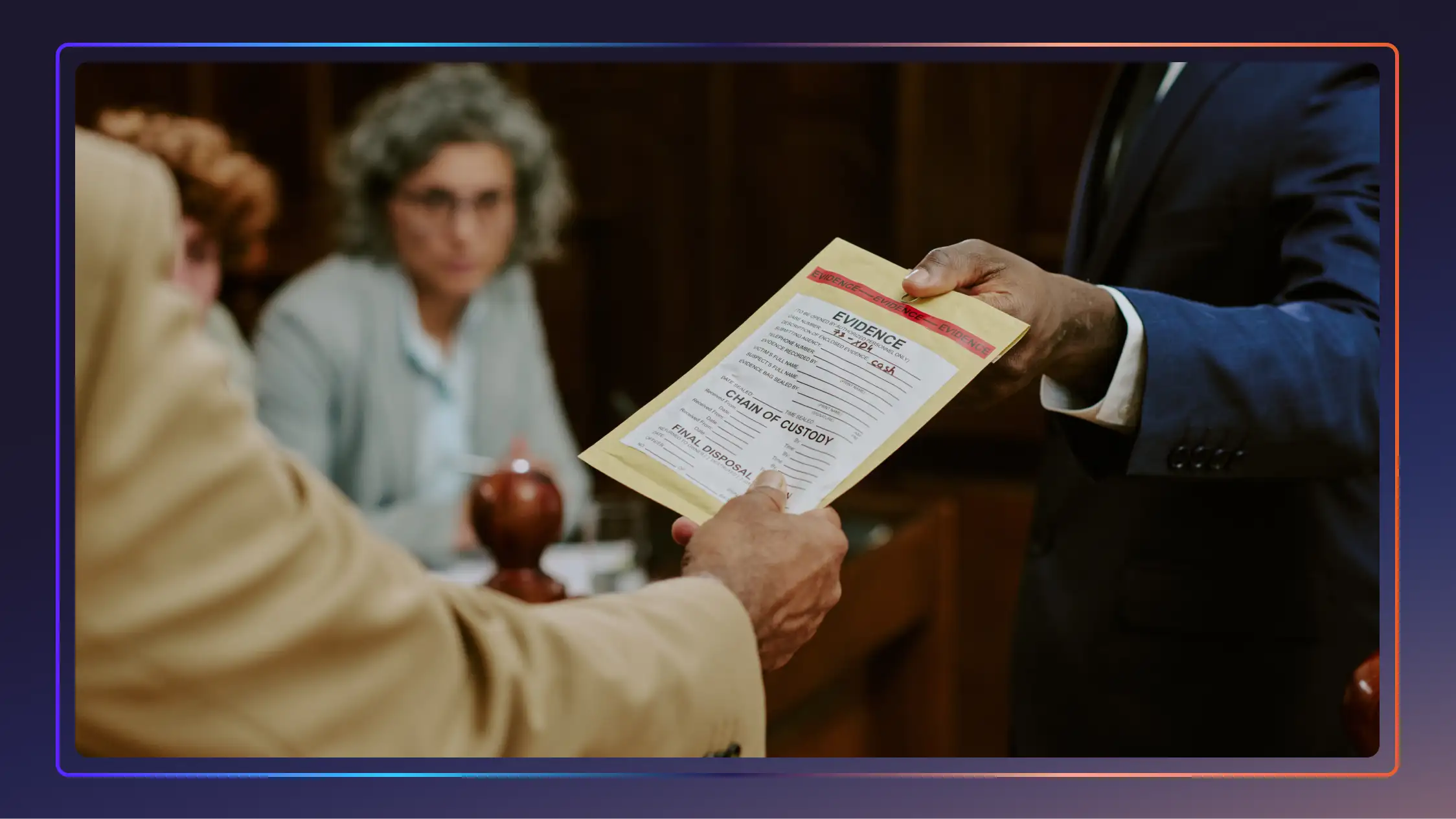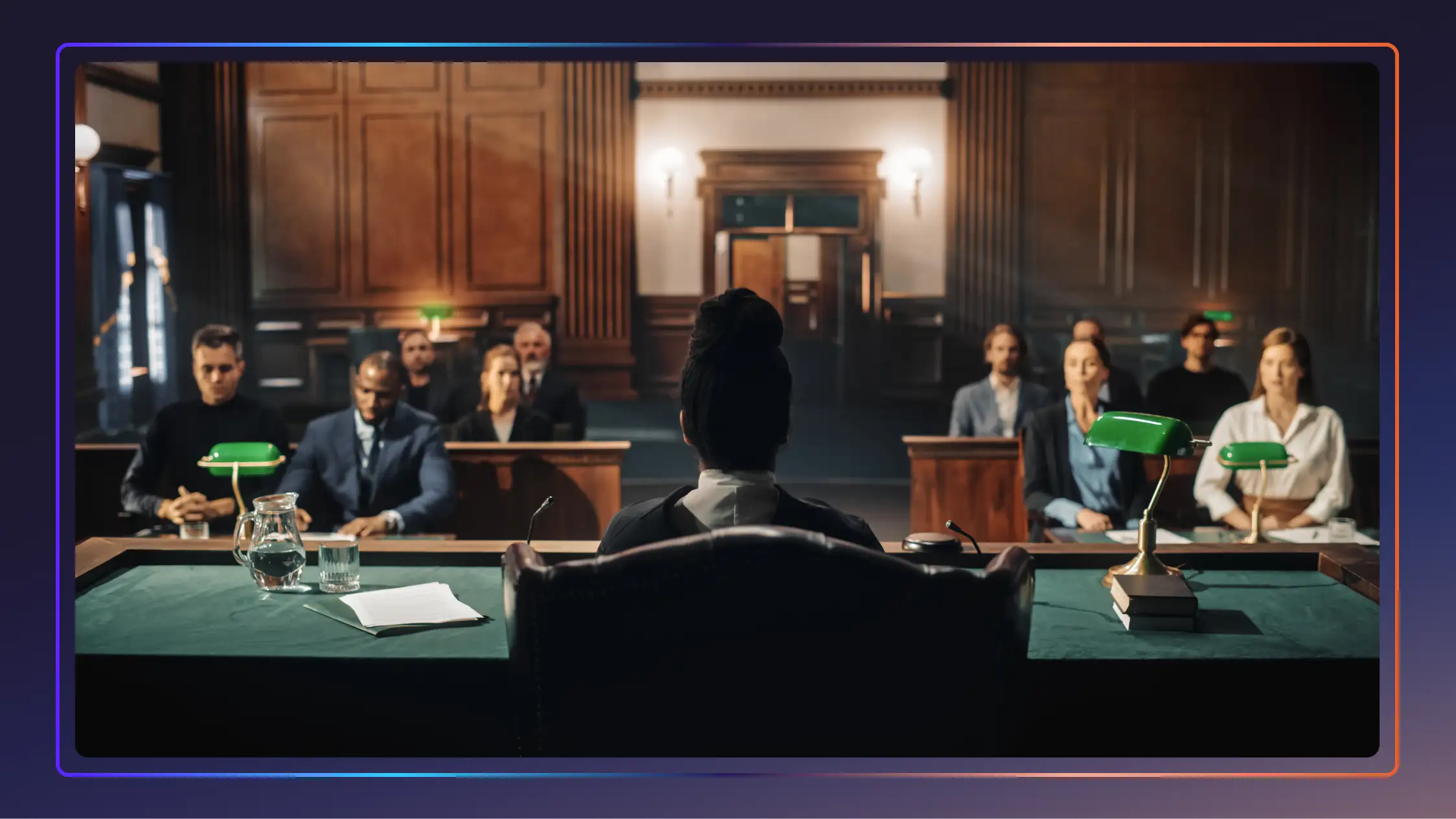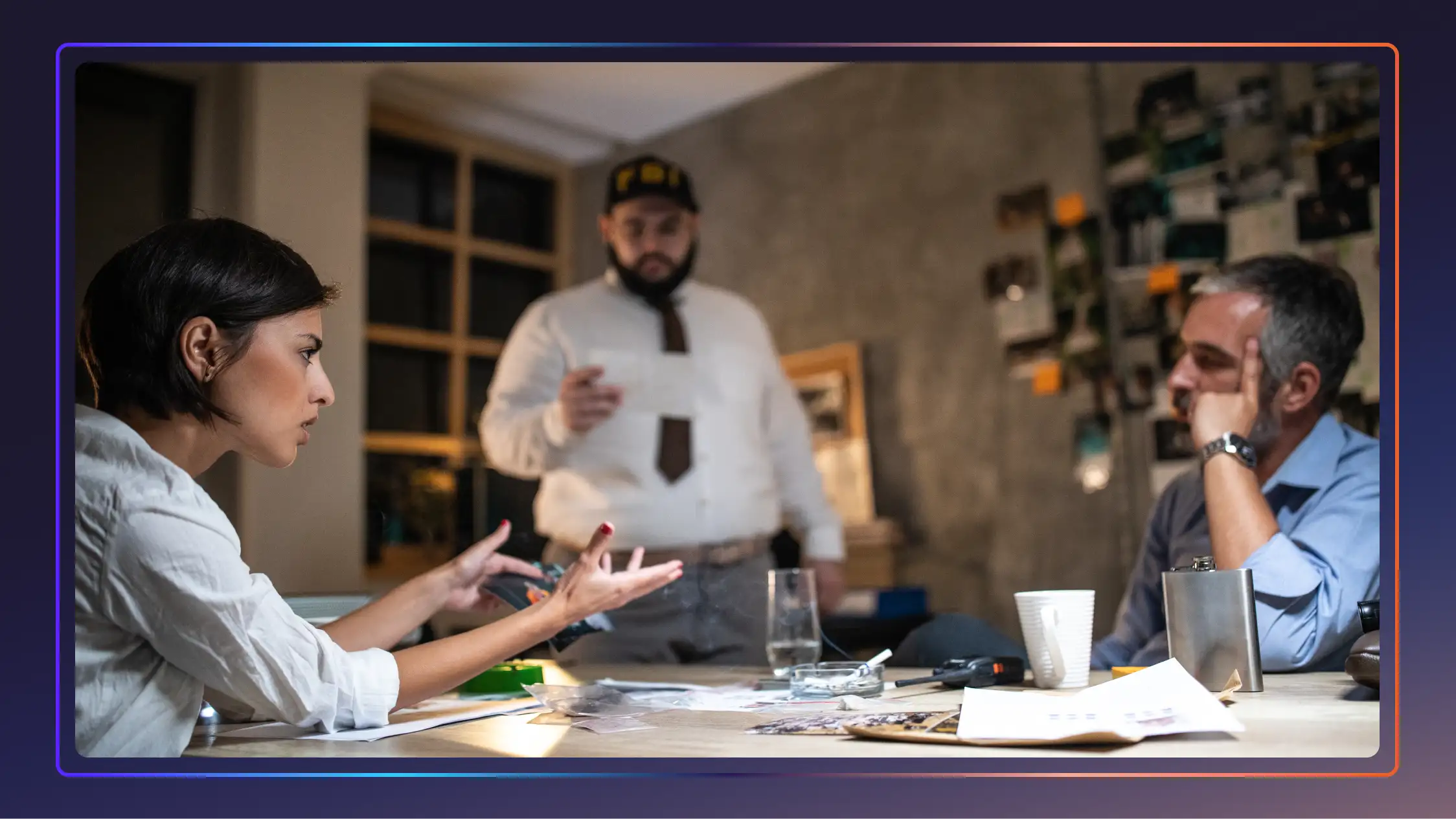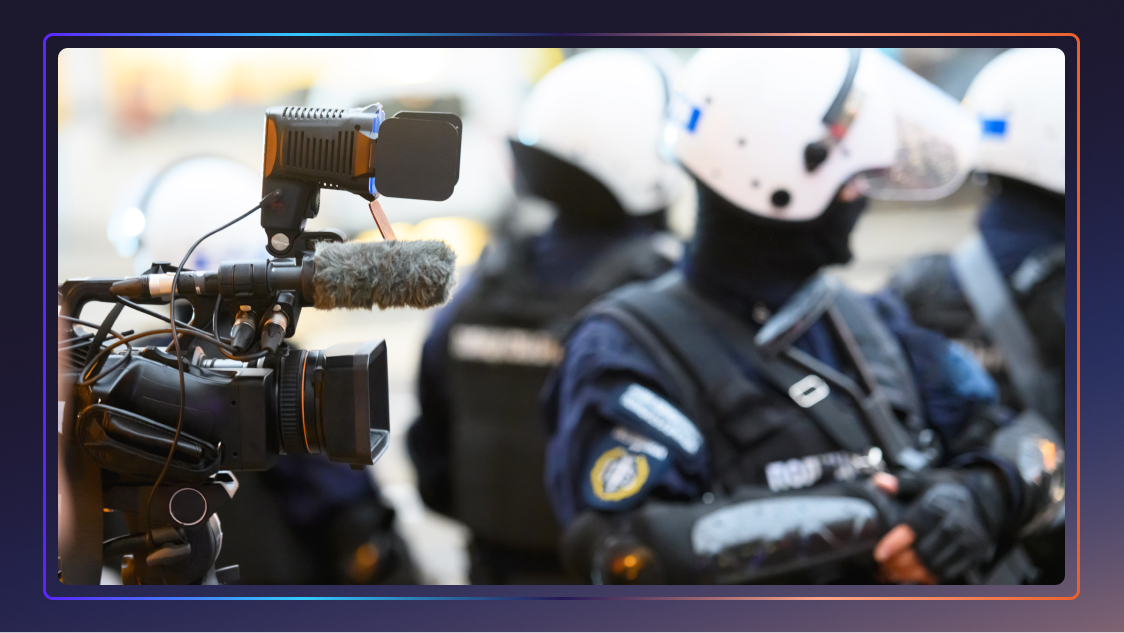Witness Preparation Tips For a Stronger Case
Preparing a witness for court can make or break your case. Let’s look at effective strategies for coaching witnesses and how you can implement them.

No pressure, but a good witness can make your case, while a bad witness can break it. Witnesses provide context to the courtroom during legal proceedings, including the all-important whens, wheres, and whys. But of course, humans can be prone to error and may be impacted by nerves or the pressure of the courtroom, which is why coaching witnesses before the trial is a necessary practice.
Preparing a witness for court boils down to making sure they know what questions they may be asked and how to answer them, and that they know the details of the case like the back of their own hand.
Let’s take a look at some expert witness preparation tips for law firms.
What Is the Meaning of Witness Preparation?
Witness preparation means preparing a trial witness for what will likely occur in the courtroom, including questions they may be asked and scenarios that may occur. This includes ensuring that your witness knows each detail of their witness statement so they can present it confidently.
Witness preparation is recommended for nearly all legal proceedings where a witness will be present. This can include deposition preparation to make sure the witness gives the best out-of-court statement possible, and trial prep where a witness will be called to testify under oath.
What Are the Basic Requirements of a Witness?
Specific requirements for witnesses can vary by jurisdiction, but in general, witnesses are required to be 18 or older, of sound mind, and neutral to the case.
There are some exceptions to this: for example, a minor can be called to testify if they can prove that they are able to understand and recite the oath to swear in. As it may be difficult to find a completely impartial witness, a judge can also make a decision about whether or not the witness’s biases will impact the outcome of the trial or not.
The Dead Man’s Statute, which is not a federal law but has been enacted by many U.S. states, also prohibits a witness from testifying about communications they had with someone who is deceased.
In the case of an “expert witness,” they must have expertise or special qualifications in the subject matter for which they are providing a witness statement. This type of witness is not subject to the same competency standards as more traditional witnesses.
Are Witnesses Compensated?
Witnesses can be compensated in some cases, though there are rules for how, when, and why. For example, eyewitnesses can be compensated for a small amount of their time and receive reimbursements for travel expenses such as lodging. But, their payment can not depend on the outcome of the trial or be used to affect said outcome.
Expert witnesses, on the other hand, are often compensated for their time and expertise.
Witness Types
Witnesses can be divided into three categories: eyewitness, character, and expert. Let’s break down what each type of witness does.
- Eyewitness: Eyewitnesses are individuals who saw the crime, event, or aftermath of the situation, and are able to discuss what they saw during the trial. They are often neutral third parties who happened to be in the area during the event. They give details that provide context about the scene of the crime. These are sometimes called “fact witnesses.”
- Character: Character witnesses are people who know someone involved in the case and are brought in to comment on their attitude, morals, reputation, or personality. If someone is on trial, character witnesses provide context to the courtroom and crucial details about who that person is.
- Expert: Expert witnesses have particular knowledge about a subject matter being discussed on trial (for example, if a court case involved an aggressive dog, a dog behavioral expert may be called in to testify).
Witness Preparation Tips
Preparing a witness can empower them to give the best possible testimony. Let’s look at some tips for the best ways for lawyers to prepare a witness.
1. Prepare Yourself Thoroughly
Yes, you need to do some prep work before you prepare your witness. In order to successfully coach your witness to give the best testimony, you should familiarize yourself with who the witness is, what your goal is for their testimony, and how they relate to the case.
By the time you’re finished studying the witness, you should be familiar with every detail about their identity, history, expertise, and relationship to the trial. This can also help you determine if the witness is a good fit for your legal strategy and can give a good testimony, or if they are an unreliable witness and could jeopardize your case.
Then, you can conduct an interview with your witness to learn more about their perspective and bolster the research you’ve already done independently. From there, you can prepare a list of questions to ask the witness in court, which you can then use to coach them on the best ways to answer those questions.
2. Schedule Multiple Preparation Sessions
One session with your witness typically won't cut it. You should schedule at least two sessions: one to get to know the witness and do the initial preparation, and the other a few days before the deposition or trial to fine-tune the witness’s responses, body language, and account for any changes that have happened in the case.
With witness preparation, more is going to be better than less. The more time you have with your witness to go over case details, run through your list of potential questions, and prepare for any complications, the better your witness will likely perform during the trial.
Practice sessions should mirror what the trial is going to be like, so that your witness feels at ease when it’s time for the real thing. This means, if you’re prepping for a remote deposition, you should test their tech and on-camera presence during these sessions. And the same thing goes for in-person depositions or trials.
3. Cross-Examine Your Witness
The reality is that you won’t be the only one examining your witness. And it’s a good idea to prepare them for cross-examination by the opposing counsel. Come up with a list of questions that the opposing side may ask, and ask your witness those questions. This can help settle some of the anxiety that they may feel during the cross-examination stage.
The opposing counsel may probe your witness with leading or vaguely worded questions to get them to overshare or contradict themselves. It’s important to prepare your witness for these potentially stressful or confusing situations by showing them what a cross-examination will look like and encouraging them to always stick to the facts. Tell them only to answer the question that was asked and go over the facts with them multiple times so they know them thoroughly.
4. Explain Courtroom Procedures to Your Witness
Especially for witnesses who may not have been in a courtroom situation before, explaining what to expect during the trial can be extremely important. Long hours in a bright room may make the witness feel mentally or physically exhausted, while intense cross-examinations may make them feel nervous or stressed.
Prepare them for the courtroom by suggesting ways to make them more comfortable (like wearing a jacket, getting a good night’s sleep, making sure to eat breakfast and drink water, etc.). Prepare them for cross-examination by nailing down the details of their testimony to make them feel more confident and be aware of the questions they may be asked.
It may also be worth it to run through some common legal jargon with your witness to make sure they know what it means if it comes up during the trial.
5. Host a Mock Trial
For trials with many moving parts, a mock trial can help all parties feel more comfortable. A mock trial can be a half or full-day event, where members of your legal team will play the typical court roles (judge, jury, etc.), and your witnesses.
During the mock trial, you can run through a few crucial moments of the trial to prepare for what may occur. You can also use a mock trial to find any holes in your legal case and patch them up before it’s too late.
6. Ask For the Witness’s Perspective
Good trial or deposition testimony preparation is all about making sure the witness has what they need to give their statement or testimony. That sometimes means making sure they’re set up to be comfortable and confident, even if it’s something that may be second nature to you or that you may not think is a trigger for someone else (like swearing in or being cross-examined).
It can be helpful to ask your witness what aspects of the trial they’re most nervous about, so you can help quell those anxieties or give the witness an idea of what to expect.
7. Make Preparation Easier With Technology
Technology tools can make witness preparation a breeze. If you record your interviews, mock trials, prep sessions, or cross-examination practice sessions, transcription services like Rev can provide an accurate written legal transcription that you can reference later. You can even search through the legal or investigative transcriptions to find what you need easily, without having to dig through hours worth of content.
For example, check out what our customer, Adam Levin, Criminal Defense Attorney at Swingle Levin, said about the benefits of Rev:
“I was able to use Rev to successfully cross-examine witnesses by leveraging the transcripts, video synced with transcripts, and various other features to effectively impeach testimony. While it’s possible to do this with other technologies, it’s much harder and requires a gazillion more hours of prep. Rev is a very cool product for trial lawyers."
Ethical and Sensitive Content Considerations
It is important to ensure that you are preparing your witness to give the most effective, true, and thorough statement. That means helping them prepare for the courtroom without influencing their opinion, testimony, or the facts in any way.
Influencing the witness’s statement to be purposefully vague or misleading crosses the line of reliability (and legality!) that is expected of lawyers. For example, if a witness saw your client leaving the crime scene at 1 p.m., you shouldn’t suggest to them that it was at a different time or that maybe they’re misremembering the time. You should always stick to the facts.
The American Bar Association puts this concept succinctly: “His duty is to extract the facts from the witness, not to pour them into him; to learn what the witness does know, not to teach him what he ought to know.”
You may also need testimony from a witness who has experienced a traumatic event, is experiencing grief, or has suffered some sort of trauma. In these cases, you should provide a trauma-informed environment that can help facilitate mental health counseling for the witness, establish firm boundaries, and strive to make them feel comfortable throughout the preparation and trial process.
The Importance of Proper Witness Prep
Proper witness preparation can help ensure that your case goes as smoothly as possible, which can not only help you win cases but also improve your reputation as an effective lawyer. The more polished, knowledgeable, and confident your witnesses look, the better your law firm will look.
For your clients, proper witness prep can be the difference between the outcome they want and the outcome they don’t. If a key witness is unable to remember important details due to nerves, stress, or improper coaching, you may end up losing a case that was yours to win.
Post-Court Analysis
As you grow in your career as a legal professional, you will no doubt learn better strategies for witness preparation. One way to do this is by looking back at your old preparation strategies and their results in the trial. From there, look at what went wrong and how you could have prepared the witness better to avoid that outcome or improve it (this is easy to do if every meeting is recorded and transcribed — just another benefit of legal transcription).
For example, if a witness was shaken up during a particularly intense cross-examination and ended up answering a question incorrectly, you can introduce new tactics to make future witnesses more prepared for tense situations.
Nothing But the Truth
With Rev? You can handle the truth, because the truth is right at your fingertips. Rev can help level-up your courtroom preparation by providing fast, accurate transcripts of your video interviews, meetings, mock trials, interviews, and more. You can reference these recordings to learn more about your client and help them prepare for the trial. And you can rest assured that with Rev’s accurate transcription features and secure storage, you’re looking at the truth, and nothing but the truth.
See how Rev can help you in the courtroom.














.webp)

